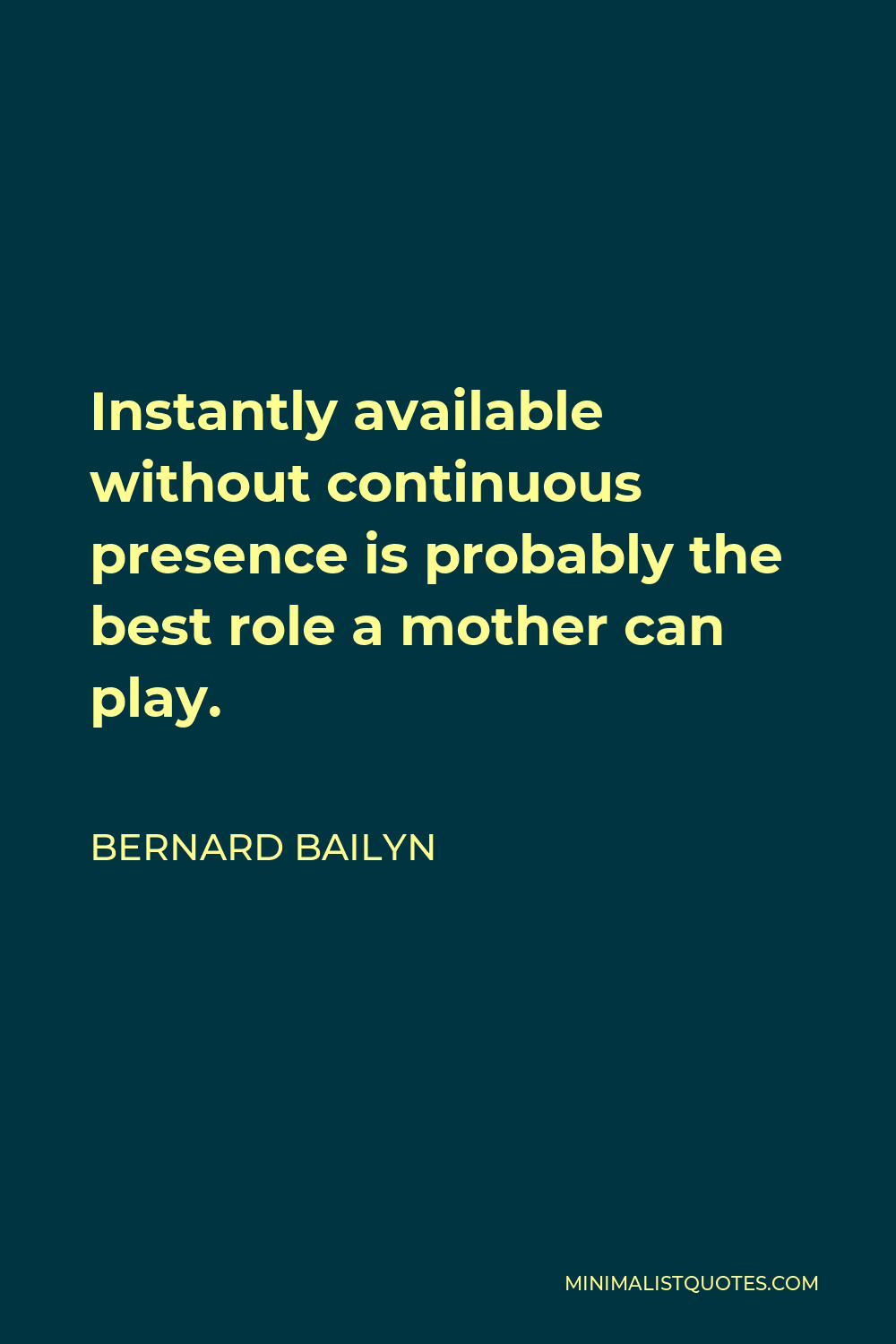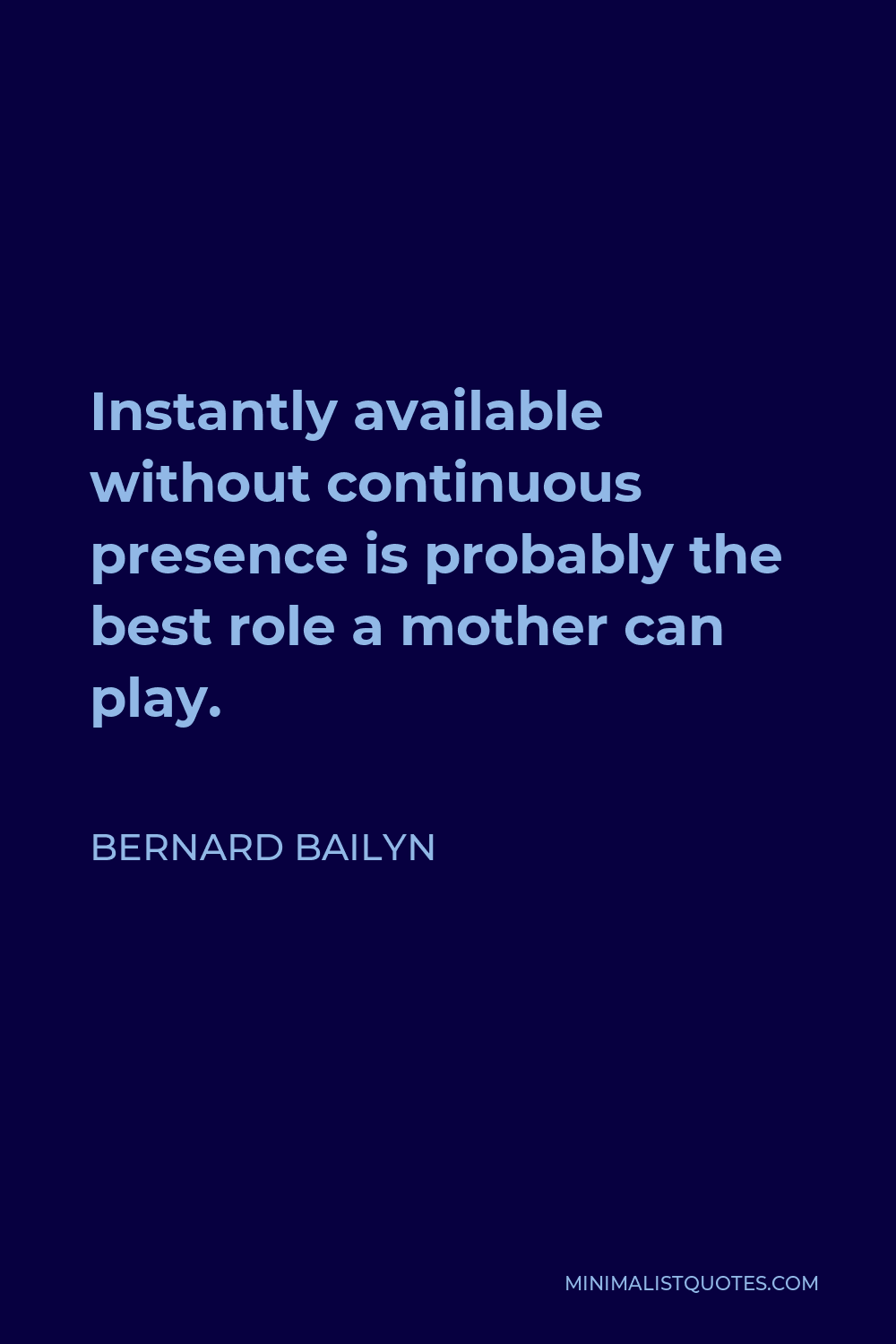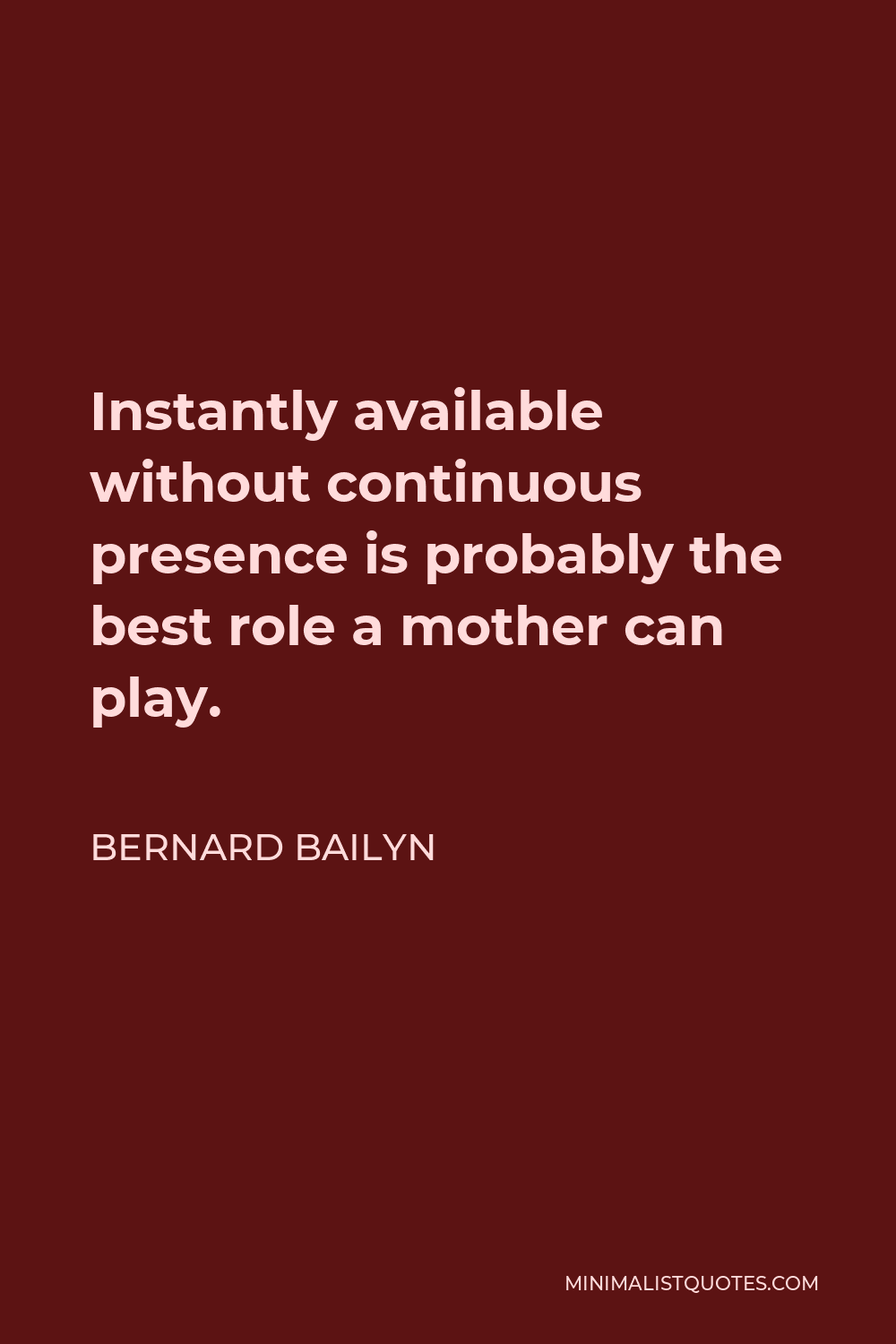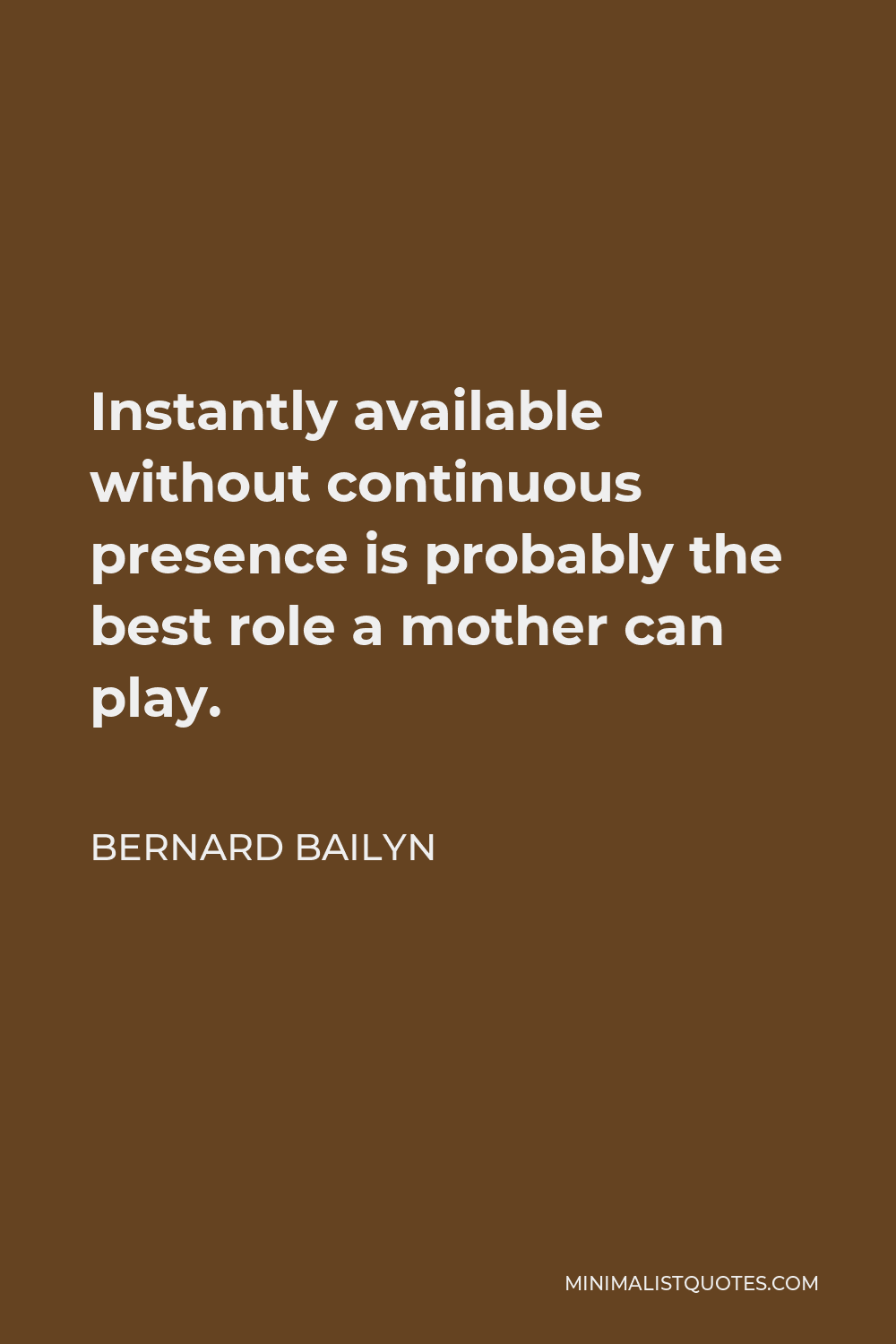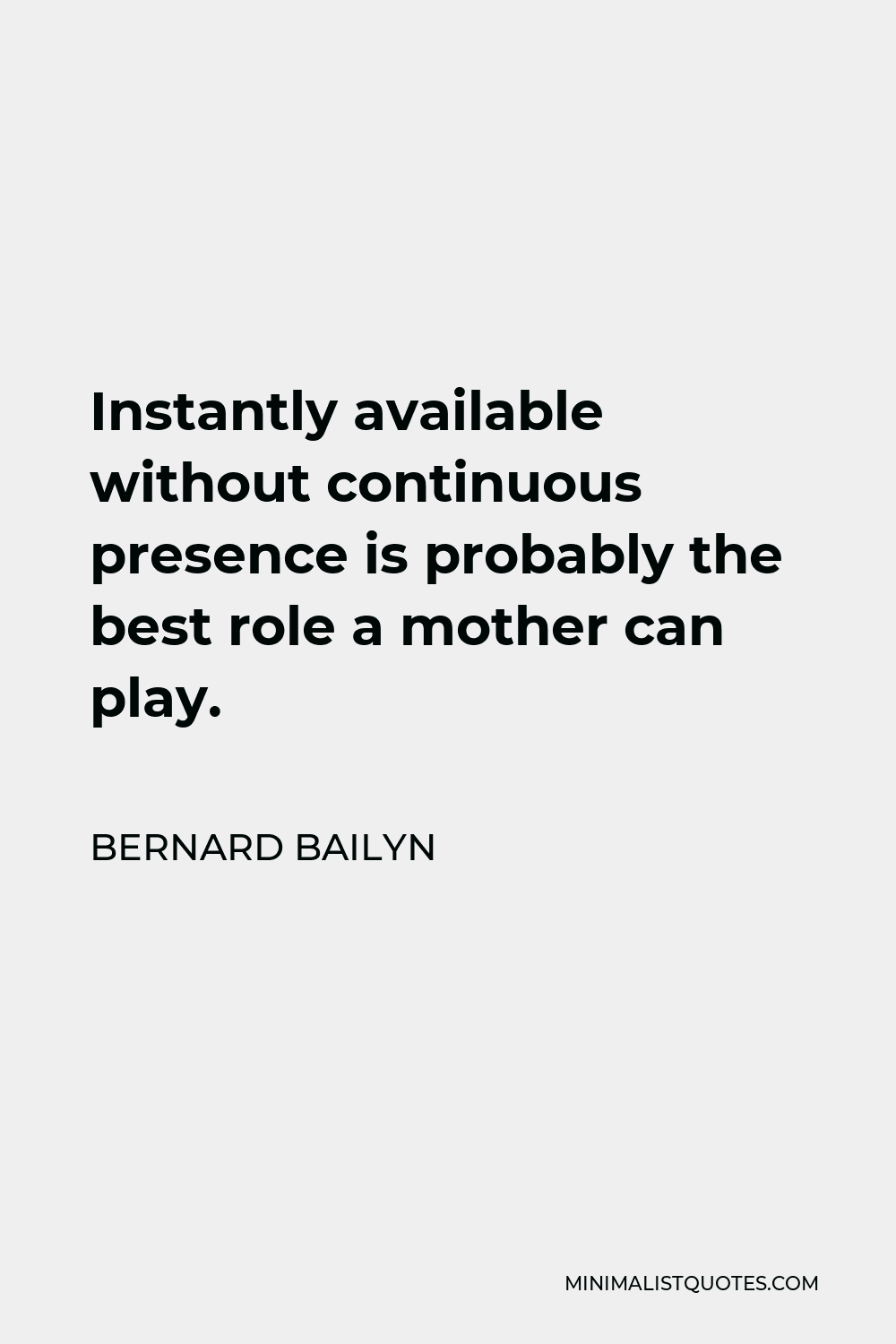In England the practice of “virtual” representation provided reasonably well for the actual representation of the major interests of the society, and it raised no widespread objection.
BERNARD BAILYNInstantly available without continuous presence is probably the best role a mother can play.
More Bernard Bailyn Quotes
-





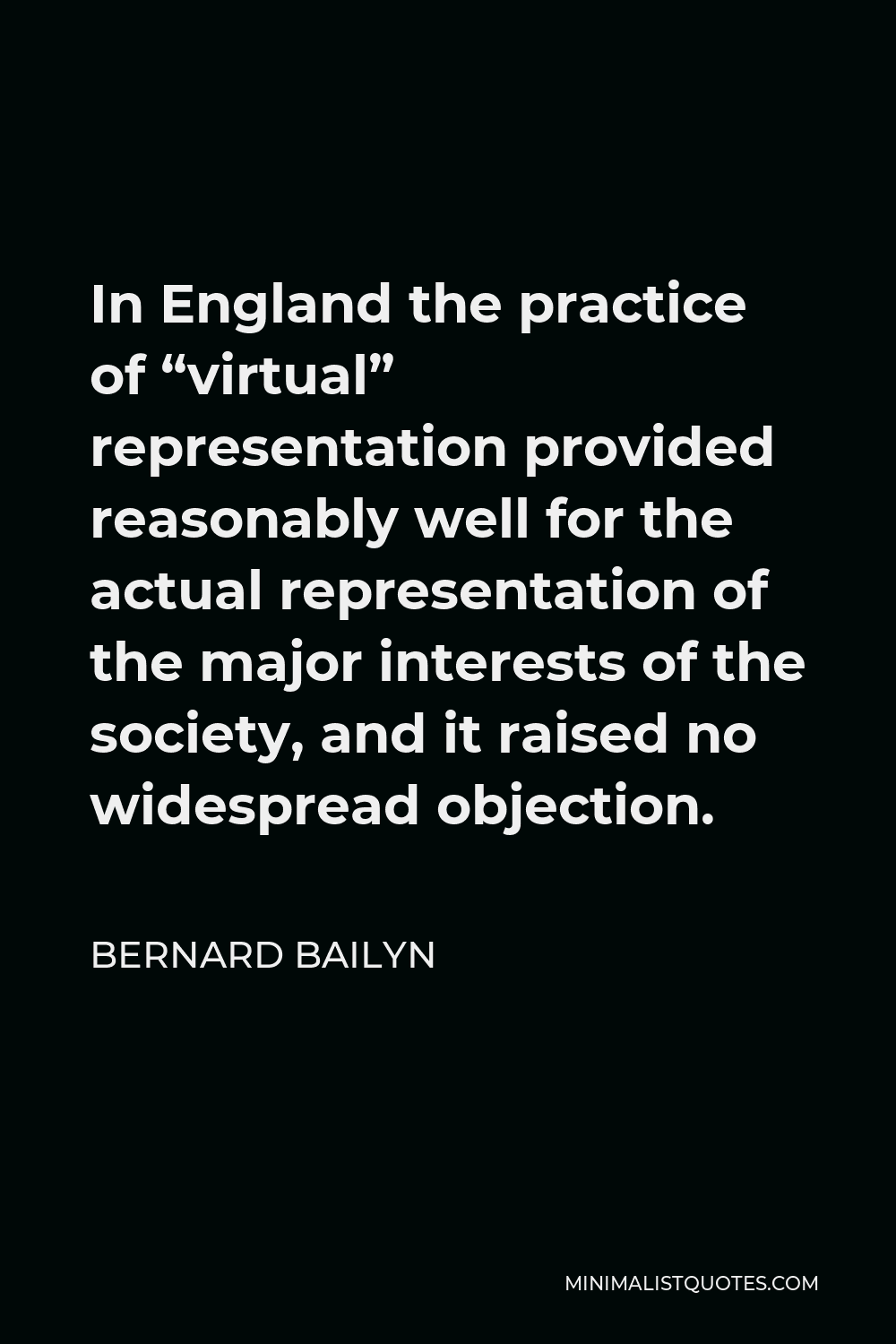
-





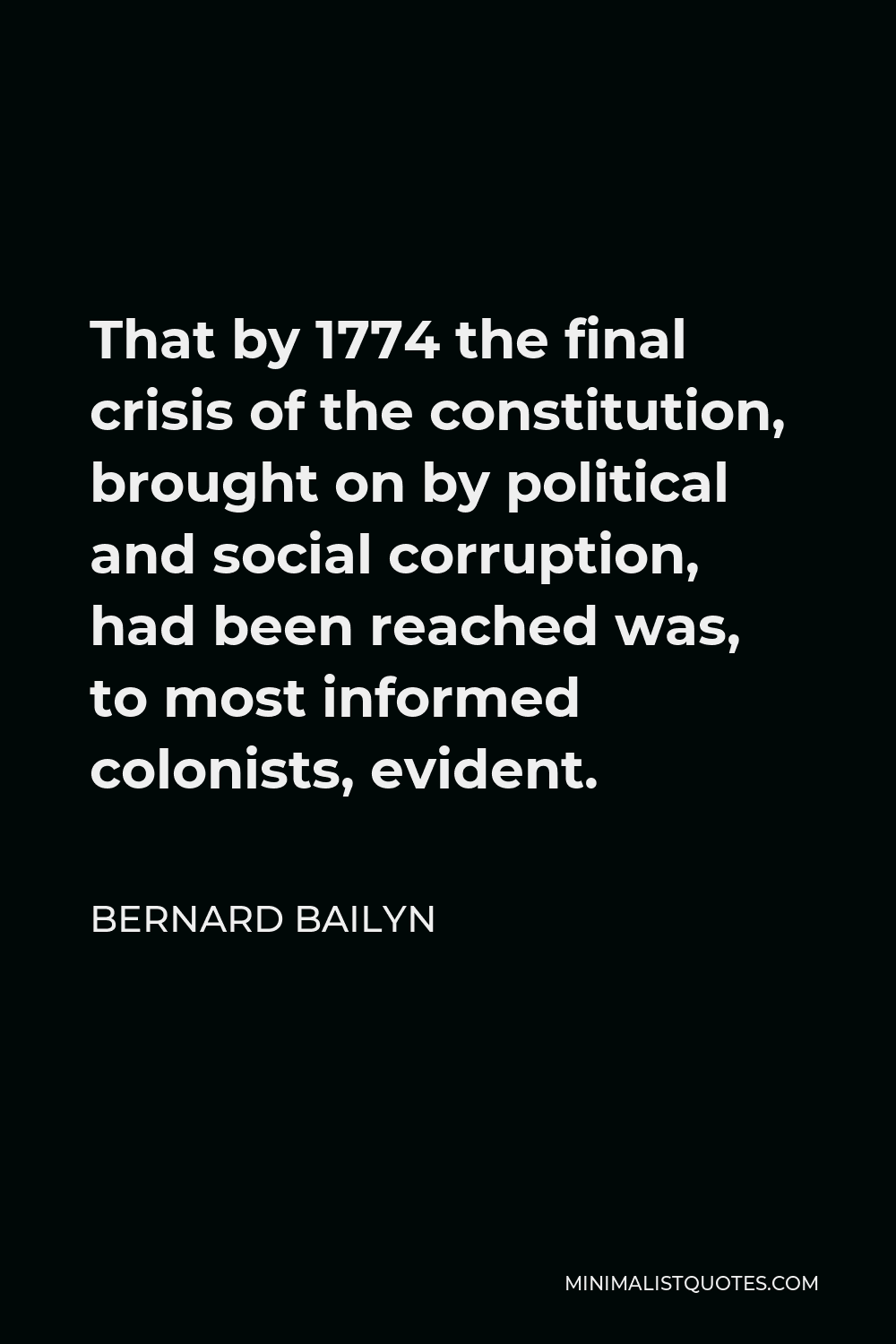
That by 1774 the final crisis of the constitution, brought on by political and social corruption, had been reached was, to most informed colonists, evident.
BERNARD BAILYN -





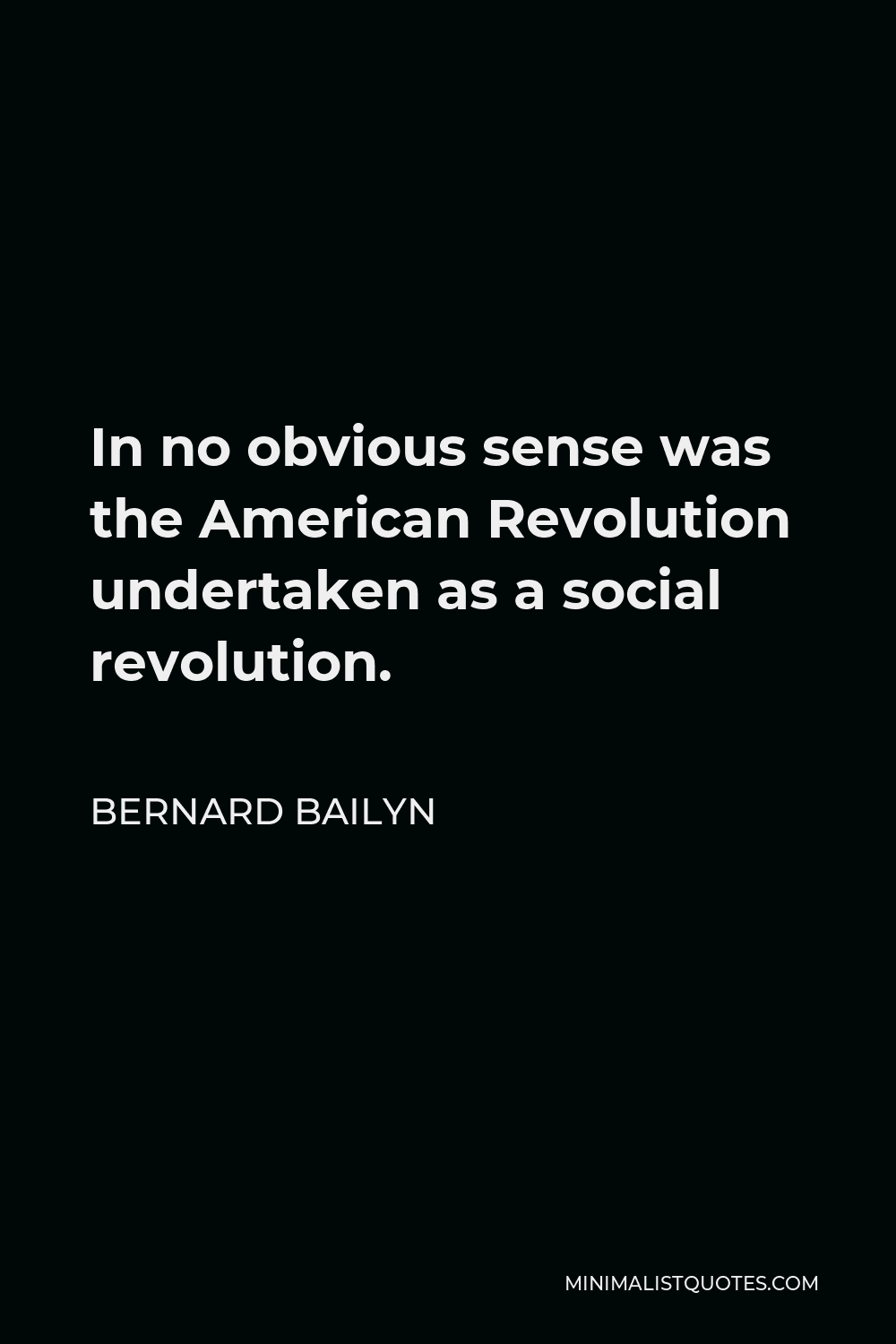
In no obvious sense was the American Revolution undertaken as a social revolution.
BERNARD BAILYN -





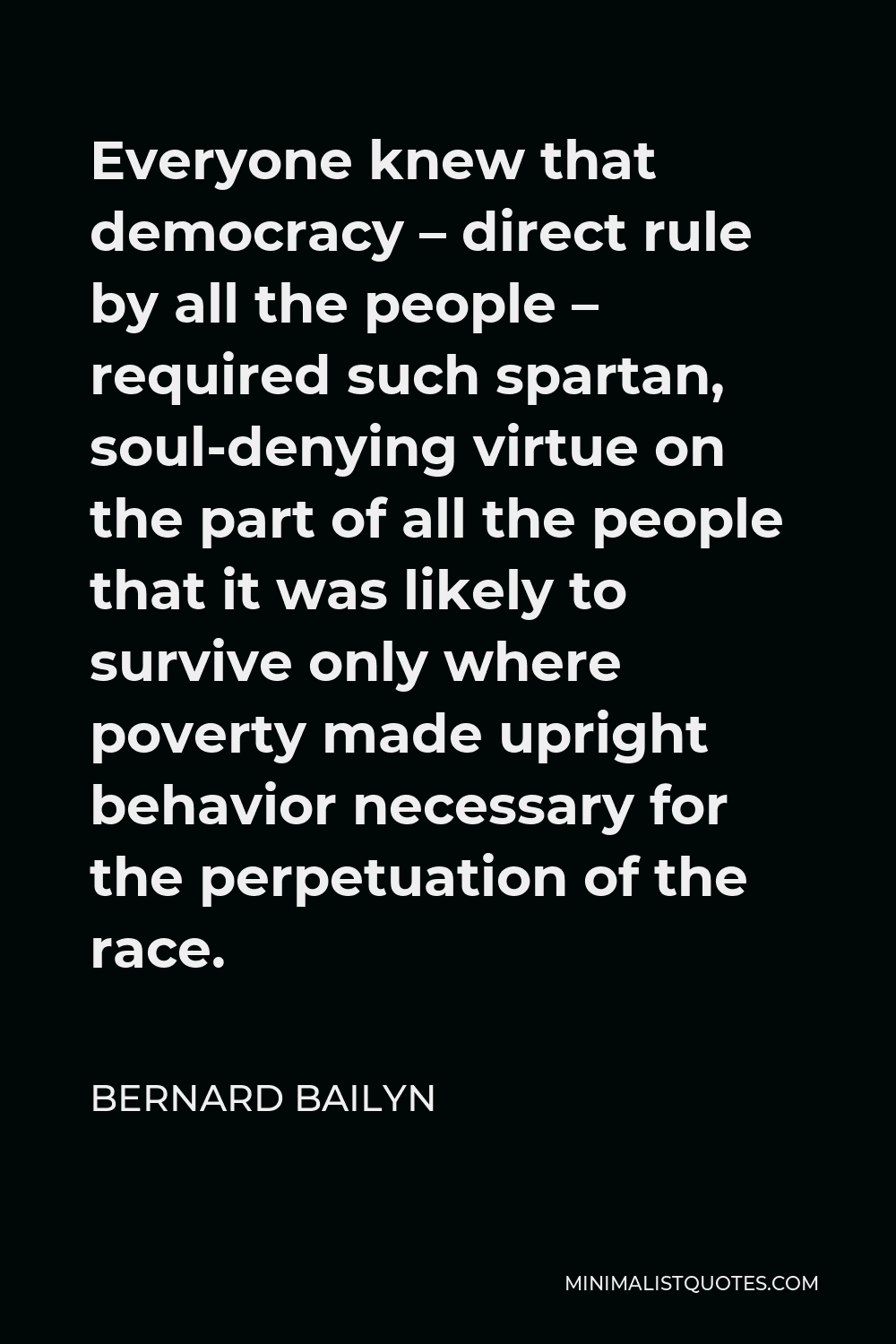
Everyone knew that democracy – direct rule by all the people – required such spartan, soul-denying virtue on the part of all the people that it was likely to survive only where poverty made upright behavior necessary for the perpetuation of the race.
BERNARD BAILYN -






The categories within which the colonists thought about the social foundations of politics were inheritances from classical antiquity, reshaped by seventeenth century English thought.
BERNARD BAILYN -





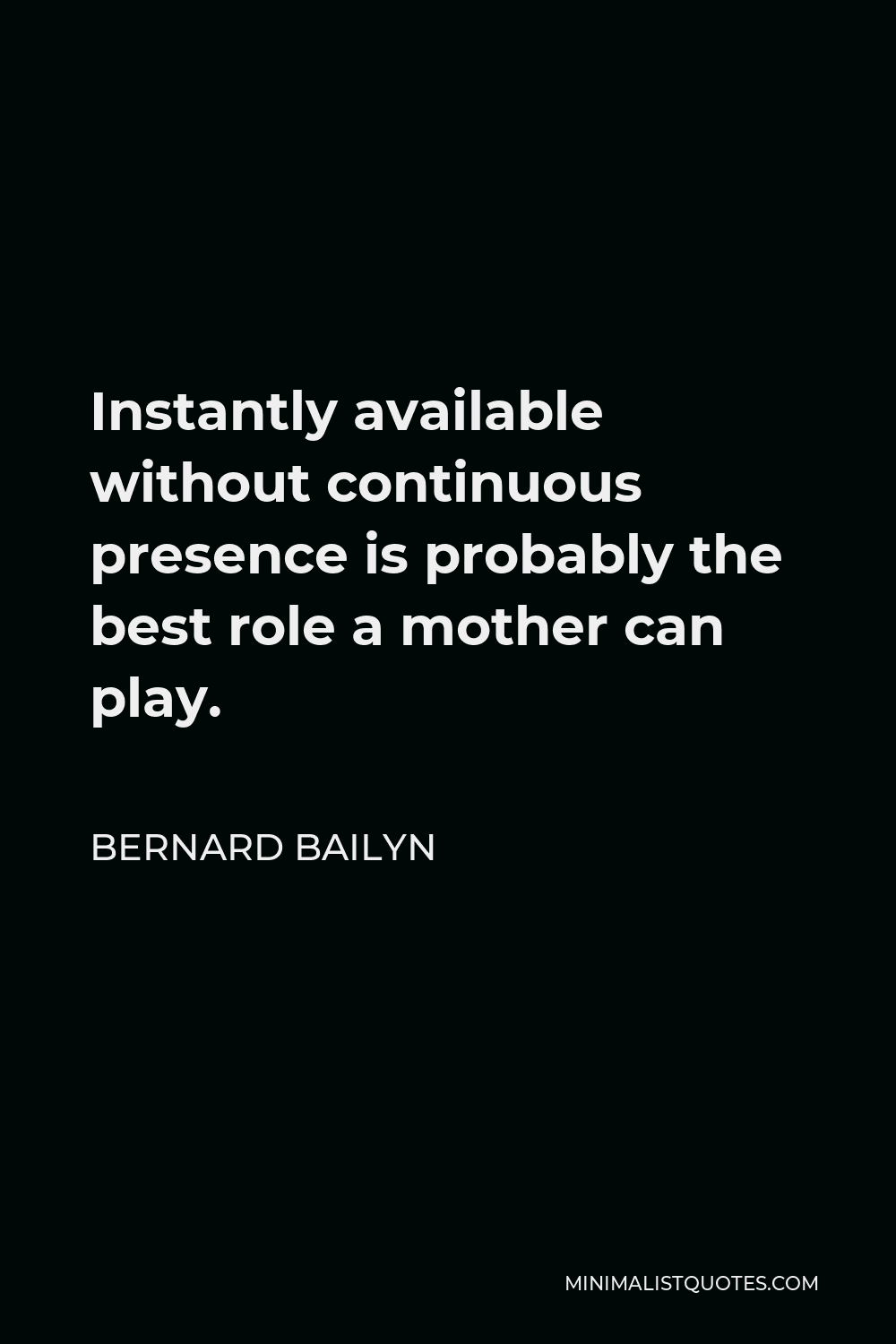
Instantly available without continuous presence is probably the best role a mother can play.
BERNARD BAILYN -






Incorporating in their colorful, slashing, superbly readable pages, the major themes of the “left” opposition under Walpole, these libertarian tracts.
BERNARD BAILYN -





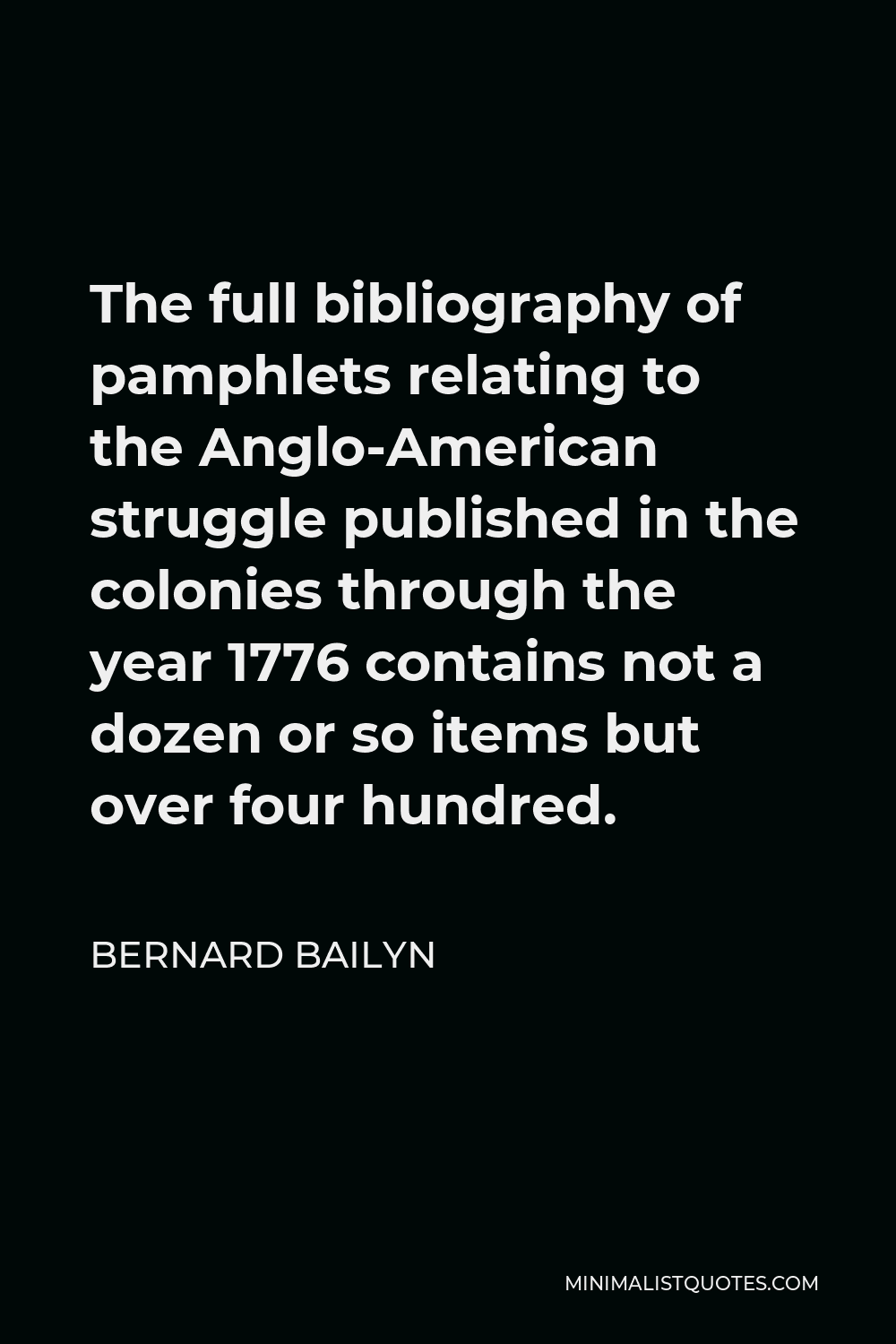
The full bibliography of pamphlets relating to the Anglo-American struggle published in the colonies through the year 1776 contains not a dozen or so items but over four hundred.
BERNARD BAILYN -





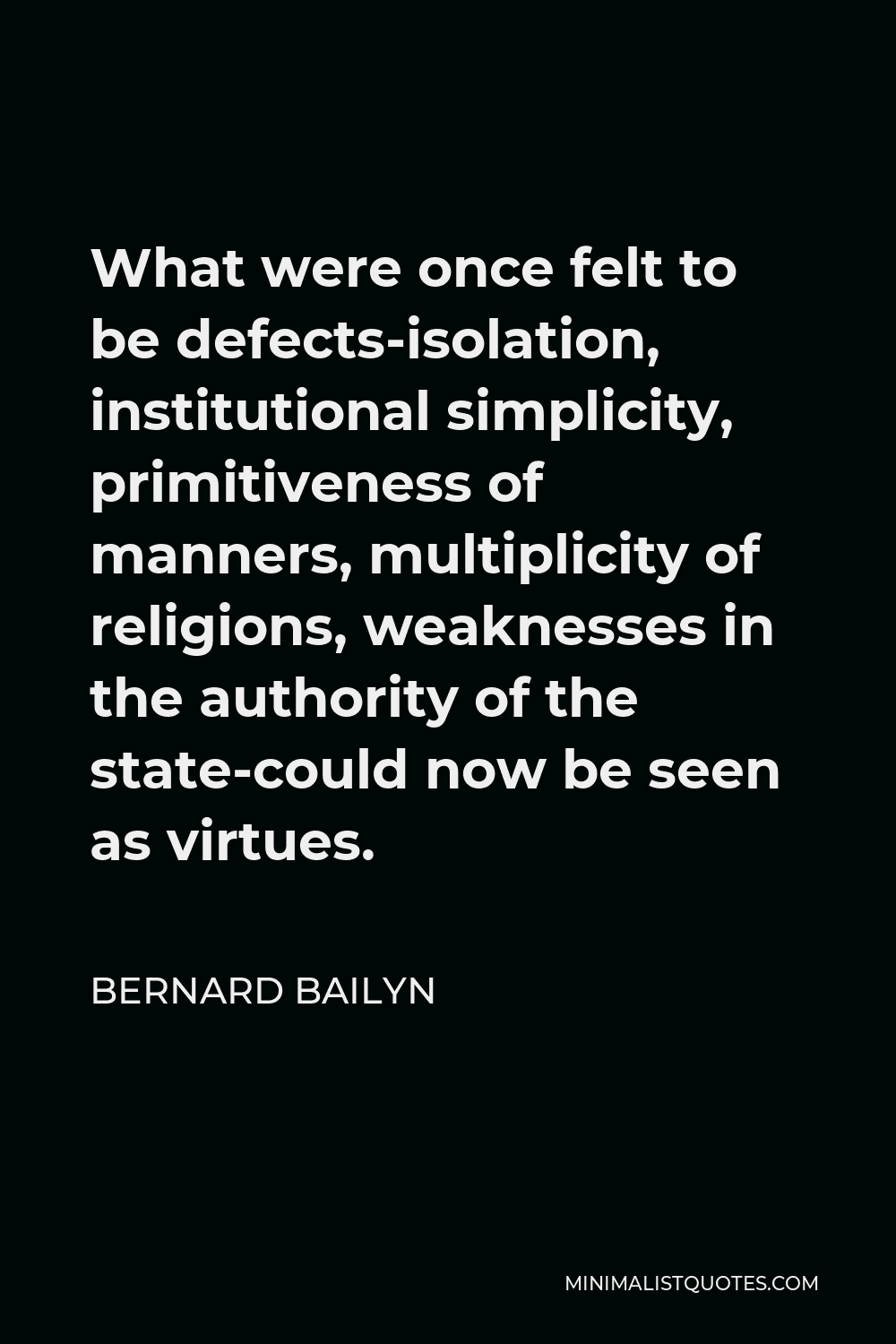
What were once felt to be defects-isolation, institutional simplicity, primitiveness of manners, multiplicity of religions, weaknesses in the authority of the state-could now be seen as virtues.
BERNARD BAILYN -





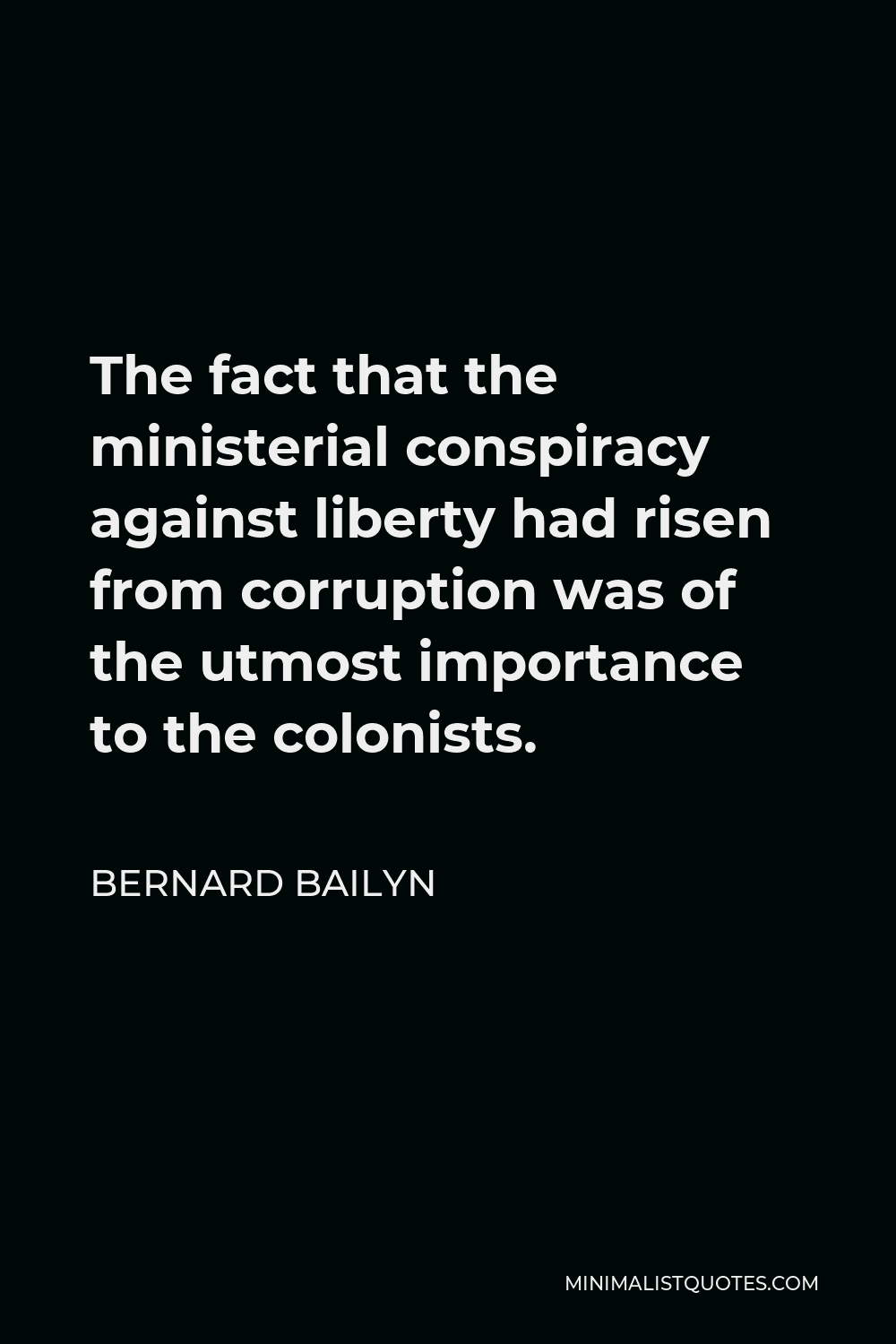
The fact that the ministerial conspiracy against liberty had risen from corruption was of the utmost importance to the colonists.
BERNARD BAILYN -





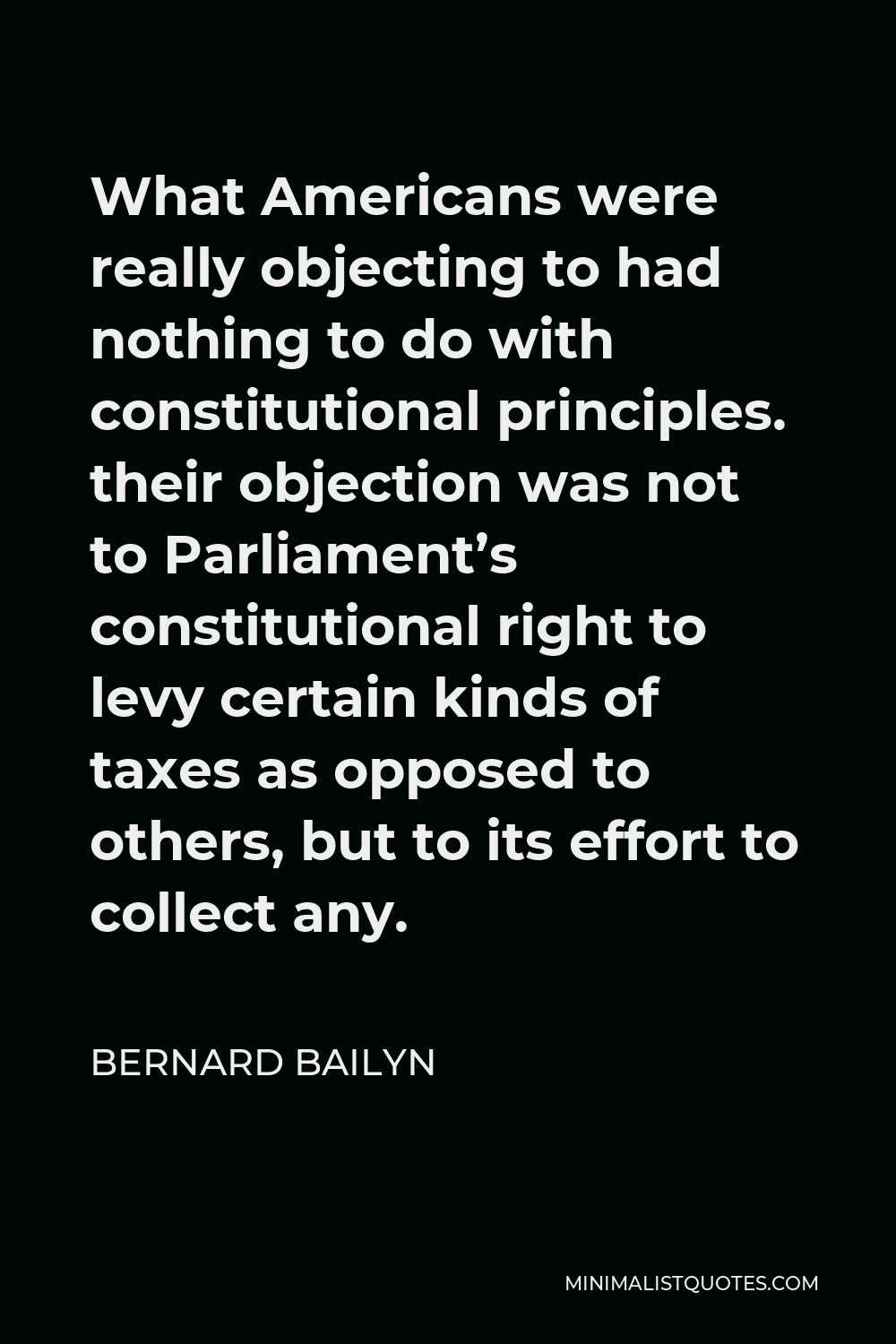
What Americans were really objecting to had nothing to do with constitutional principles. their objection was not to Parliament’s constitutional right to levy certain kinds of taxes as opposed to others, but to its effort to collect any.
BERNARD BAILYN -






Not only by Americans themselves but by enlightened spokesmen of reform, renewal and hope wherever they may be-in London coffeehouses, in Parisian salons, in the courts of German princes.
BERNARD BAILYN -





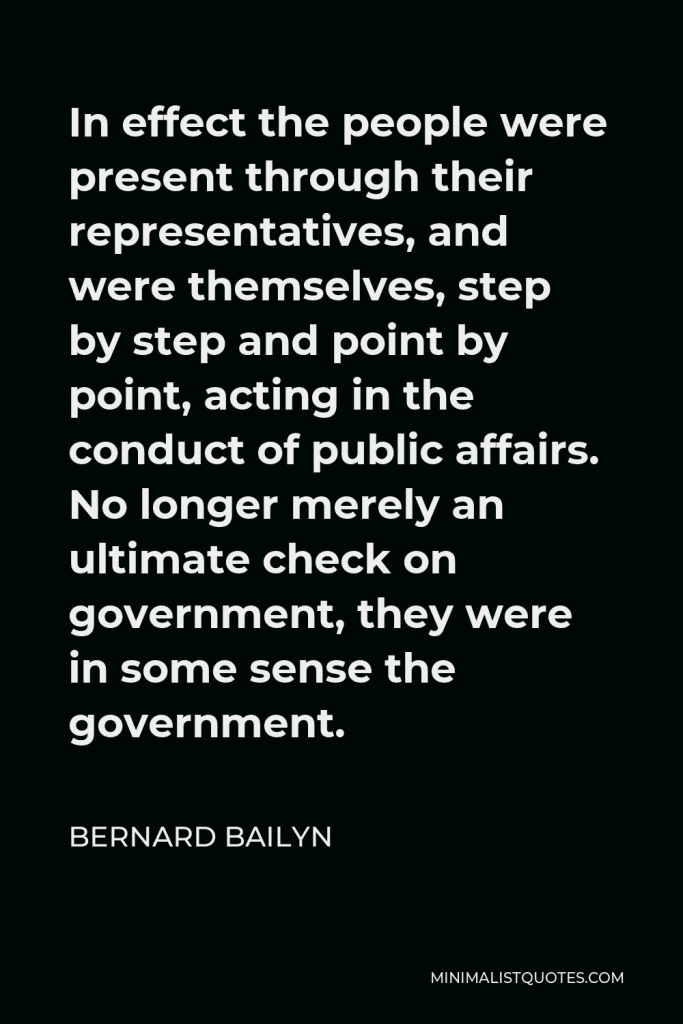

In effect the people were present through their representatives, and were themselves, step by step and point by point, acting in the conduct of public affairs. No longer merely an ultimate check on government, they were in some sense the government.
BERNARD BAILYN -





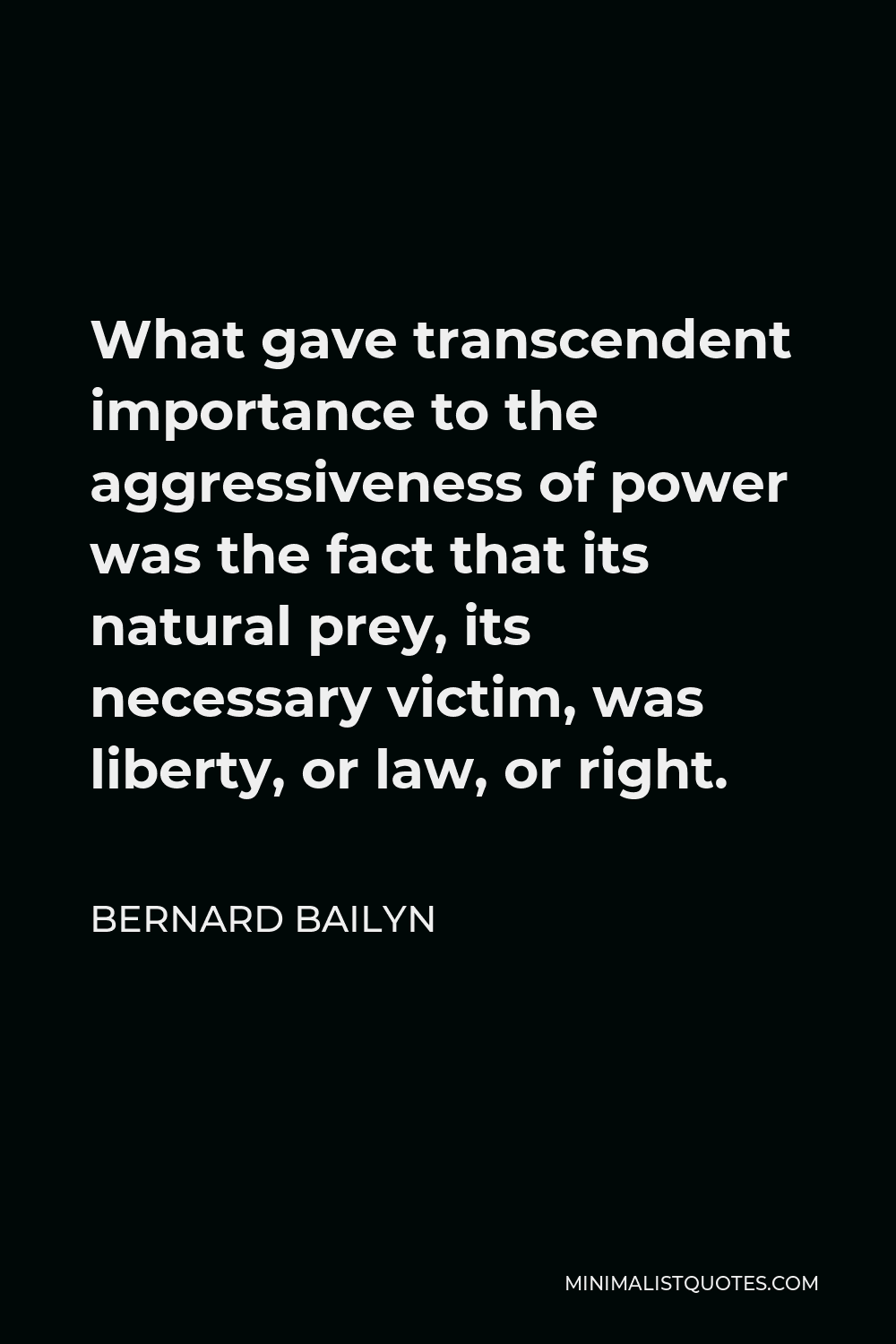
What gave transcendent importance to the aggressiveness of power was the fact that its natural prey, its necessary victim, was liberty, or law, or right.
BERNARD BAILYN -







Defiance to constituted authority leaped like a spark from one flammable area to another, growing in heat as it went.
BERNARD BAILYN -





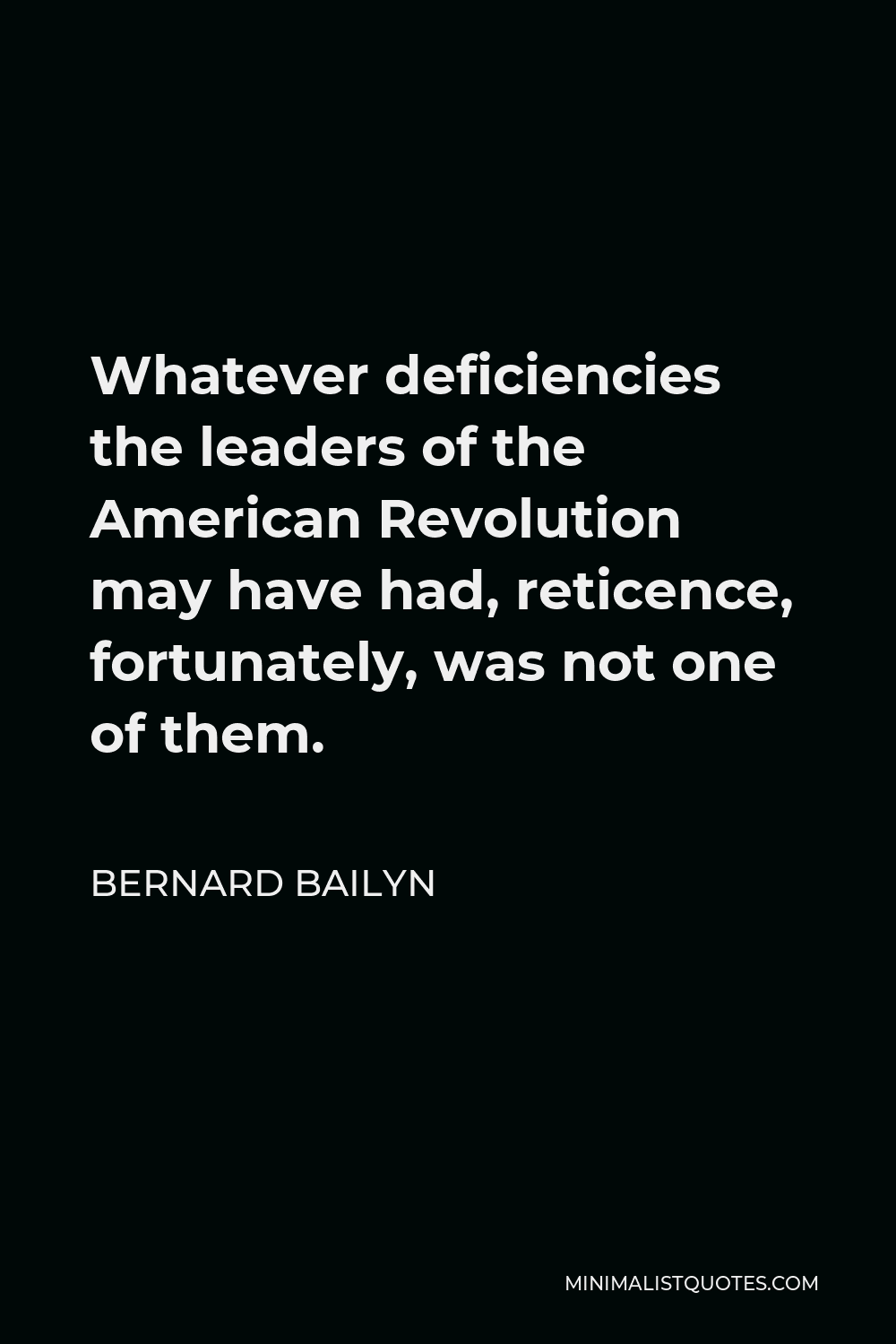
Whatever deficiencies the leaders of the American Revolution may have had, reticence, fortunately, was not one of them.
BERNARD BAILYN
